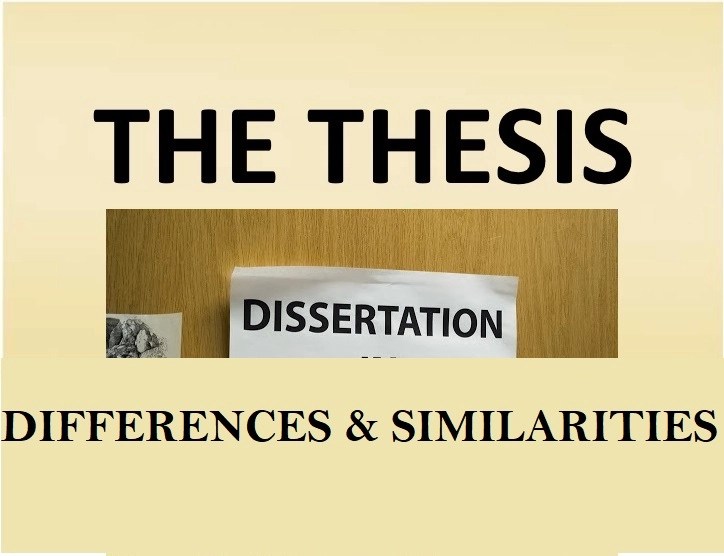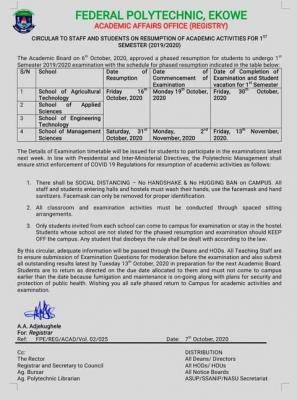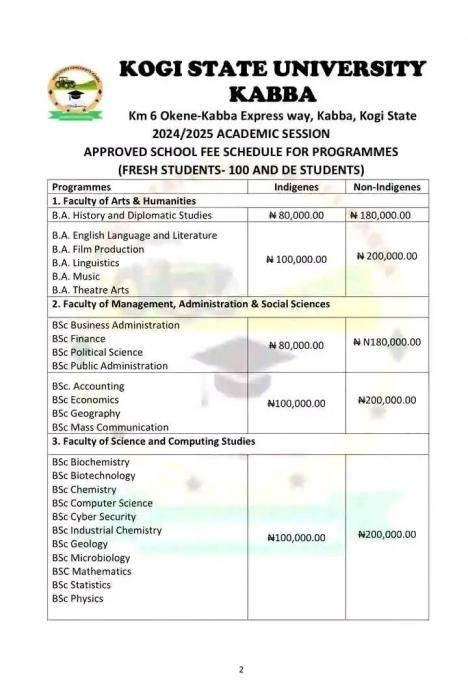
If you’re thinking about going to graduate school, you’ve probably heard that a comprehensive paper is required to graduate, and you’re probably wondering what the difference between a thesis and a dissertation is.
It’s great that you’re planning ahead. However, let us start with listing and explaining the types of degree, in case you are not conversant with them.
Types of Degree
A doctorate, also known as a PhD, is the highest degree that can be obtained. In several cases, students will take the following path to achieve this level of education: Earn a bachelor’s degree, then a master’s degree, and finally a PhD.
Not every job requires this level of education, the salaries that come accompanies each level of higher education increase proportionally.
Now that you are aware of the type of degrees, let us go back to their differences:
There are distinct differences between the two terms, despite the fact that they are sometimes used interchangeably and frequently confused.
The structure of both papers is similar because they include an introduction, a literary review, a body, a conclusion, a bibliography, and an appendix. Beyond that, the parallels are essentially non-existent.
For this article, we would be looking more closely at each definition and the differences between them. Then we would go on to unearth the similarities between them
10 Basic Difference Between Thesis and Dissertation
For the sake of clarity and a better understanding about Thesis and Dissertation, we would be using a table to clearly show the difference between both of them. The major disparity between dissertation and thesis is when the work has been completed.
| SN | Dissertation | Thesis |
| 1 | The dissertation happens during doctoral studies | While the thesis is an academic research work that signifies the completion of an MSc program. |
| 2 | Both of them have different purpose, the thesis is a collection of research that demonstrates your understanding of the material covered in your graduate program. | While during your doctorate program, you will have the opportunity to contribute new theories, knowledge or practices to your field through a dissertation. The goal is to create an entirely new concept, develop it, and defend its value. |
| 3 | In master’s degree, thesis is similar to the types of research papers you are familiar with writing in college. You conduct research on a topic, scrutinize it and then comment on the information obtained and how it relates to the particular issue at hand. The purpose of the thesis is to demonstrate your ability to think deeply about a topic and to discuss the information in detail. However, in thesis, you are expected to use this avenue to write more on a subject that is key to a particular area in your course that you wish to follow-up on professionally. | In a dissertation, you use other people’s research to help you develop and prove your own unique theory, concept or hypothesis. The majority of the information written in a dissertation is usually to your credit. |
| 4 | In a doctoral dissertation is much longer than a master’s thesis because it involves a lot in the background and the information on research, coupled with how at every detail in your work and how you arrived at the information you include. A dissertation is actually a complex work and can be two or three times the length of a thesis project. | A master’s thesis is quite different in length from a dissertation. Here the project work should be around a 100 pages in length. |
| 5 | A dissertation requires the PhD student to conduct his/her own research and also perform analysis. | While a thesis is usually based on existing research already carried out by other writers or authors |
| 6 | In most cases and most schools, an oral presentation of a dissertation can take several hours to present | While a thesis can take fewer time, like an hour to present, ask questions and respond to questions. |
| 7 | The structure of a dissertation is quite different from that of a thesis. A lot more is included in a dissertation, as more research is expected for the doctoral student postulates his own theory and defends it with analysis. Hence why a dissertation is more voluminous than a thesis. | While a thesis is less complex when juxtaposed with a dissertation. |
| 8 | A PhD dissertation is normally contains a research topic in each chapter and research methodology. | While in master’s degree, the organization of the thesis is usually focused on one primary research question. |
| 9 | In dissertation, the doctoral student is expected to describe the very well. | However, in thesis the student is just expected to claim the hypothesis. |
| 10 | A dissertation is meant to test the student’s ability to independently undertake research and comprehend the subject. | While thesis is meant to test the knowledge and ability of the student to comprehend a particular subject. |
Each school and program has its own guidelines for what a thesis and dissertation should contain, as well as its structure. However, you now have an overview of the difference between a thesis and a dissertation.
10 Similarities between Dissertation and Thesis
Earlier on, we took time to outline the differences between a thesis and a dissertation, likewise we would also take time to clearly list out their similarities. As much as they may have different approach and are offered in different times of an academic session, they are also known to share some similarities. Below are some of those similarities;
| SN | Dissertation | Thesis |
| 1 | During your dissertation, you will receive guidance from a member of your faculty who will serve as your project supervisor, to guide you through out your work. And if you ever get stuck and need assistance in locating certain information, he/she will be there to ensure that you are on the right path | Likewise, during your thesis you will receive guidance from a member of your faculty who will serve as your project supervisor, to guide you through out your work. |
| 2 | In a doctoral degree program, a dissertation is considered as a final project for one to graduate. | Similarly, in a master’s degree program, the thesis is also considered as a final requirement for one to graduate. |
| 3 | A dissertation requires deep understanding of the topic. | The same thing applies to a thesis, deep understanding of the topic is required to carry out the research work. |
| 4 | Having a good writing skill is key to completing a dissertation. | A good writing is equally very important to completing your thesis also. |
| 5 | Plagiarism is a serious offence in dissertation. | You are also not allowed to plagiarize in your thesis. |
| 6 | A dissertation is employed to defend an argument | Similarly, thesis is also used to defend an argument. |
| 7 | Having good analytical skills is very important to completing this research work. | Analytical skills are equally very important here. |
| 8 | You will have to write, rewrite and editing your dissertation work while writing. | You will also spend time drafting and changing already written information in your thesis. |
| 9 | You will be expected to prepare a report on the research work, indicate the method used, the objectives, results, conclusion as well as the recommendations in your dissertation. | The same thing applies in thesis, you will be expected to prepare a report on the research work, indicate the method used, the objectives, results, conclusion as well as the recommendations. |
| 10 | The dissertation usually ends with the student orally defending his/her work in front of a panel of examiners, who would ask the student questions pertaining to their topic/study. This is also aimed at observing the students ability to defend their work. | Also in thesis, the student orally defends his/her work in front of a panel of examiners, who would ask the student questions pertaining to their topic/study. This is also aimed at observing the students ability to defend their work. |
Just like we mentioned some of the differences, we were also able to mention a number of the similarities between both research works. Similarly, we would also like to include the differences in context.
Differences in Context as regards to Location
1) The United States of America
Everything listed above is how schools in the United States distinguish between a thesis and a dissertation. A master’s thesis is completed by master’s students, while a dissertation is written by PhD candidates.
2) Europe
The distinction between a thesis and a dissertation becomes a little murkier in Europe. This is due to the fact that PhD programs may require a doctoral thesis in order to graduate. Students may then complete a dissertation as part of a larger post-graduate research project.
As many of you are already aware, there are numerous distinctions between various forms of English, such as British English and American English.
Dissertation and thesis are used differently in different countries that speak English as their first language.
In general, nations whose academic systems are based on British university education use the term dissertation to refer to the body of work produced at the end of an undergraduate or master’s level degree, and the word thesis to refers to the body of work produced at the end of a PhD.
The words are usually used backwards in countries and institutions that are based on the American educational system. Also, keep in mind that different institutions and even departments within the same university may use the terms differently.
If you’re unsure, stick with how the words are used at your current university and department. So, how do some universities use them and how do some departments use them?
Is it possible that it will depend on the subject you are studying?
In the United Kingdom, the terms are generally applied uniformly across institutions and subjects. However, in the United States, different subject areas may use the terms differently.
The term thesis can have the same meaning as in the UK because it is the result of original research and ideas, but it is used at the master’s level in science subjects in the United States.
In the United States, you can complete a master’s thesis in another subject that involves extensive reading and understanding rather than original research and still call it a thesis.
It all boils down to your university and department.
A lot of Universities/departments in Nigeria refer to thesis and dissertation as the same thing, both for Master’s degree and PhD degree. A dissertation and a thesis, according to Georgetown University in the United States, both contribute to your ‘field of knowledge.
On the other hand, some Universities like the University of Edinburgh recommends that you consult your individual course handbook for dissertation guidelines, as each department will have its own set of rules for using the terms dissertation and thesis.
A thesis is defined at University College London as the piece of work completed at the end of a research degree such as an EngD, MPhil, MD(Res), or PhD. This should clarify any issue of confusion that one may have in the University.
What Is the Goal of Written Research?
Each piece of writing allows a student to show his or her ability to think critically, give their thoughts in writing, and report their findings in front of their department.
Graduate degrees require a significant amount of time, energy, and effort to complete. There is a lot of time management involved when writing such lengthy and informative pieces. Both a thesis and a dissertation serve as written evidence that you understand and have mastered the subject matter of your degree.
Conclusion: In the end, it doesn’t really matter which word you use because both refer to a serious and lengthy piece of work in which you can demonstrate what you have researched and understood. Your mastery of either thesis or dissertation is not dependent on the term you use, however it is also important you comprehend what term is best used for each degree.
You will avoid confusion as long as you refer to the piece of work that you are compiling in the same way as those in your department.
Writing a dissertation or thesis requires a significant amount of planning and work, and you don’t want to let yourself down at the last hurdle by presenting your work poorly, so always keep an eye on your course or department guidelines.



